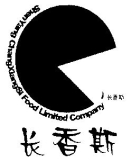When recording a trademark assignment in China, we should not only consider the issue of "assignment simultaneously", but also notice that any assignments that may easily cause confusion or have other adverse effects will not be approved. Therefore, it is crucial for the related parties to stay informed about the situations that could potentially result in confusion or negative effects during assignments. By consulting the "Guidelines for Trademark Assignment Procedures" released by the CNIPA in 2023, we can explore this subject comprehensively and offer valuable insights for the parties (especially for the assignee).
1. Assigning a trademark containing a geographic name to an assigneeoutside of that geographic area may easily lead to public confusion about the origin of the goods
In this regard, if a trademark featuring a geographic name is assigned to an assignee located outside of that region, the subsequent use of the trademark on products associated with that geographic area may result in a strong association. This could potentially lead to confusion among the relevant public or consumers regarding the source of the goods, contradicting the stipulations and objectives of Article 10.1(7) of the Trademark Law. Therefore, such trademark recordal will not be approved by the CNIPA.
For example, the trademark "  " contains the city name, WASHINGTON, so
it cannot be assigned to any party which does not locate in
WASHINGTON.
" contains the city name, WASHINGTON, so
it cannot be assigned to any party which does not locate in
WASHINGTON.
2. Assigning a trademark containing a company name (including the full name, or abbreviation, etc.,) to the assignee whose name is not consistentto the trademark may easily lead to confusion among relevant public or general consumers
Trademarks that include the company name, whether in full name, abbreviation, Chinese name, English name, or Pinyin, and serve as a key identifier of the entity, are typically permissible for registration. However, if the assignee of such trademarks results in the company name no longer aligning with the assignee's name, deviating from standard commercial practices and potentially causing confusion among consumers regarding the product's origin, it should not be approved.
For example, the trademark "  " contains the company name
"SHENYANG CHANGXIANGSI FOOD LIMITED COMPANY", so it is
not feasible to assign this mark to any other party.
" contains the company name
"SHENYANG CHANGXIANGSI FOOD LIMITED COMPANY", so it is
not feasible to assign this mark to any other party.
3. Trademarks with special meanings should not be registered or allowed for assignment if such assignment may have negative or adverse effects on public interest, public order, or public morality
The trademarks prohibited from registration and use as stipulated in Article 10 of the Trademark Law should not only be prohibited during the application stage, but also should not be allowed for assignment, as this would be contrary to the legislative purpose and protection objectives of the Trademark Law. The following signs may not be used as trademarks according to Article 10:
1) Those identical or similar to the name, flag, emblem, anthem, military flag, military emblem, military song, or medal of the People's Republic of China, as well as the names, logos, and names of specific locations or iconic buildings of central state organs;
2) Those identical or similar to the name, flag, emblem, or military flag of a foreign country, unless authorized by the government of that country;
For example, the trademark "  " contains country name. Though it was
registered successfully very earlier under the old version of China
Trademark Law, it cannot be assigned to any party that does not
come from Italy under current law; otherwise, the use of the marks
will be considered as misleading the consumers about the origin of
the goods.
" contains country name. Though it was
registered successfully very earlier under the old version of China
Trademark Law, it cannot be assigned to any party that does not
come from Italy under current law; otherwise, the use of the marks
will be considered as misleading the consumers about the origin of
the goods.
3) Those identical or similar to the name, flag, emblem, or logo of an intergovernmental organization, unless authorized by the organization or not likely to mislead the public;
4) Those identical or similar to official marks or inspection marks indicating control or guarantee, unless authorized;
5) Those identical or similar to the name or logo of the "Red Cross" or "Red Crescent";
6) Those containing ethnic discrimination;
7) Those deceptive and likely to mislead the public about the quality or origin of goods;
8) Those harmful to socialist moral standards or having other negative influences.
Furthermore, administrative divisions at or above the county level or well-known foreign place names shall not be used as trademarks. However, exceptions apply when the place name has other meanings or is part of a collective trademark or certification trademark. Existing trademarks using place names shall remain valid, but similar to the above example, they cannot be assigned to any third parties.
4. For trademarks that are maliciously applied for registration without the purpose of use, it is prohibited to further circulate them in the market through assignment.
With the revision of Article 4 of the Trademark Law in 2019, which stipulates that "Natural persons, legal persons, or other organizations engaged in production and business activities, who need to obtain exclusive trademark rights for their goods or services, shall apply for trademark with the Trademark Office. Malicious trademark applications that are not intended for use shall be rejected" and the issuance of regulations such as the "Notice of the CNIPA on continuously and severely cracking down on malicious registration of trademarks," the efforts to crackdown on malicious behavior have been integrated into the examination stages of registration application, rejection, opposition, invalidation.
The CNIPA indicate that, if the assignor owns a relatively large number of trademarks and has previously assigned trademarks to different unrelated assignees, while the assignor fails to provide any legitimate reason of assignment, evidence of use or intent to use, or upon provision, cannot prove that the evidence is valid, the assignment will not be approved. Here is an example. An individual business has applied for 700 marks and assigned some of the marks to different, unrelated entities. The CNIPA rejected its assignment on the suspicion of "malicious trademark stockpiling and illicit gain through assignment." Therefore, when facing malicious trademark squatting, in order to avoid unnecessary losses caused by the assignmentbeing rejected, we should not easily choose to negotiate and purchase the trademark with the squatter.
In summary, any party intending to acquire the exclusive right to use a trademark through assignment must conduct a thorough examination and careful consideration before reaching an assignment agreement in order to avoid the negative effects and risk of non-approval of the trademark assignment.
The content of this article is intended to provide a general guide to the subject matter. Specialist advice should be sought about your specific circumstances.


